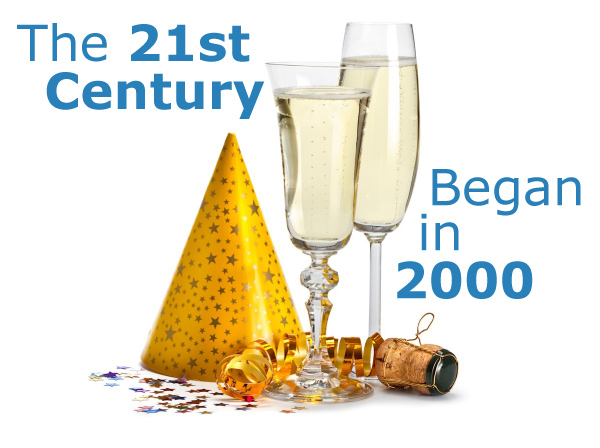Did the 21st Century begin in the year 2000?
The dawning of the year 2000 was celebrated with unprecedented parties and festivities all around the globe. But was it really the start of the 21st century (and the third millennium), as so many believe?
The current calendar system used by the Western world is called the Gregorian calendar. It was named for Pope Gregory XIII, who created it in 1582 as a refinement of the Julian calendar. The Gregorian system introduced a number of enhancements, primarily a leap-year methodology to more precisely reconcile the difference between a calendar year (365 days) and a solar year (365.2425 days).
Both the Gregorian and Julian calendars count years from the traditional date given for the birth of Jesus Christ (Anno Domini, or A.D.) Since there was no “Year Zero,” the first year in the calendar is 1 A.D. Therefore, the end of the first century is 100 A.D., and 101 A.D. begins the second century. Continuing with this reasoning, the 20th century began in 1901 and ended in 2000. Therefore, 2001, not 2000 is the first year of the 21st century. Likewise, the second millennium ended in 2000 and the third millennium began in 2001.
Though technically incorrect, some have argued that since the dates in question have been arbitrarily assigned by humans, there is no reason that we can’t choose to celebrate the start of the new century in 2000 instead of 2001!





of course year 0 didn’t exist on the calendar of gregorian
I very much agree! Just like 2020 is the LAST year of the decade and not the START of a new decade. Whereas a DECADE is a group of ten, you know from 1-10, not 0-9.